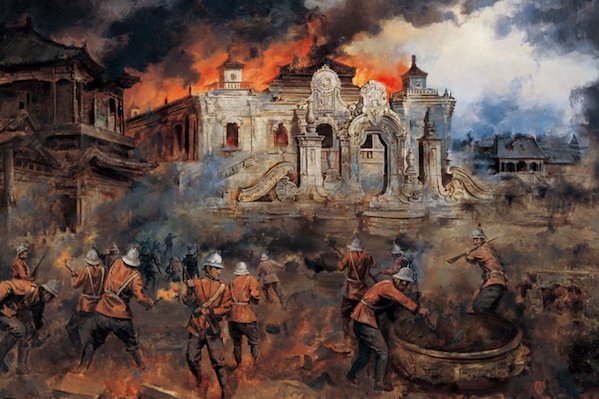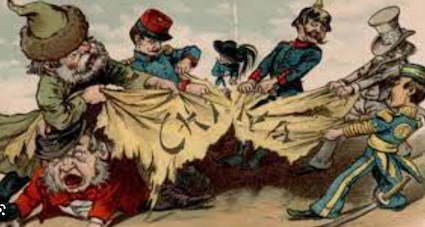(This is a two-part series on China. It looks at its relations with India and World through the prism of facts, pricking the propaganda we are stuffed with — NewsBred).
Let’s talk China and make up our mind.
“Expansionist” or growing through trade with thousands of projects in 140 countries, trillions of dollars invested through One Belt One Road (OBOR)? No war in last 45 years, anyone?
“Debt Trap” or we believe African Union which denies such is the case; or the World Bank which says 3/4th of Africa’s debts are with multilateral bodies/private lenders. China’s is 12% to the US’ 35% of Africa’s debt, we are told.
“Maritime menace” in Indo-Pacific or the plain sight of US-Japan-Korea in control of northern Pacific; no Chinese channel to Indian Ocean; and disputes with Vietnam, Malaysia, Philippines notwithstanding a booming trade with them in South China Sea.
“Territorial disputes” or it being a general trend in nations bordering Indo-Pacific, not just China: Philippines with Malaysia which in turn with Singapore, Indonesia with Borneo, Japan with Korea etc etc.
(What else do you expect in a watery expanse of nearly 28,000 islands, over hundred archipelagos which the colonialists left in a huff one fine morning after the World War II).
I admit there is an elephant in the room — India treats both Pakistan and China as immediate threat on its borders. We shall come to it but let’s first look at China we don’t know.
xxx
Mings were overtaken by Manchus who ruled China between 1644-1912, or 250 years of West’s presence in Asia.
Britain sped ahead of others and after beating Napoleon, it ruled the waves. Spain, Portugal and Dutch trailed by a distance. Britain was hell-bent on trade, favourable trade, come what may.
But China posed a problem. It didn’t want maritime trade. It felt abundant within. Britain jockeyed, as did other colonialists. No luck.
For next 100 years, China did what it wanted. West longed for its silk and tea. China desired zilch from them.
Britain then hit upon Opium which was East India Company’s preserve in India. The opium sale, albeit illegally, had tripled by 1833. China bristled and the history recorded Opium Wars.
Treaty of Nanjing (1842) ended the first Opium War. A humiliated China was to part with Hong Kong, pay the British a staggering indemnity and “lower the tariff.”
British merchants now could trade with anyone from five ports, including Canton.
A supplementary treaty next year made sure a British citizen would never be tried in China.
Meanwhile Shanghai was taken in 1842, Yangtze River was penetrated, Nanking was in sight.
It was the start of China’s “century of humiliation.”
France (1844) now trotted in. More than trade, it looked for propagation of Christian religion. Americans (1844) and Portuguese (Macao) slipped in too.
The imperialists now lusted for more.
In 1856, they launched a new war on a lame pretext. Two years later, the Treaty of Tianjin allowed foreign envoys to take up residence in Peking.
Yet the trade West was looking for didn’t pick up!
Imperialists now demanded more than ports. Consuls were given the right to use force. Natives were beaten to death and the Manchus dynasts could do little. It bred enormous hatred for the Westerners amongst people.
China was now completely prised open.
The West could navigate around Yangtze River, opium trade was legalized and so did the “pig trade” — Chinese as slaves disbursed over various colonies around the world.
(Locals were abducted and kidnapped and from Macao shipped to places as far as Cuba and Peru. Transporting them was floating hell as mortality rate was 45%.)
While the East India Company was quelling the 1857 independence war in India, in China, Anglo-French became directly involved, supported by the Americans, and took over Canton. 11 more ports were opened. Chinese couldn’t persecute even the Christian converts and this gave winds to missionaries. All locals had to do was to convert and go rogue!
Still, not enough.
In 1860, an eight-nation alliance arrived at the gate of Peking with army. For days, the old Summer Palace was plundered and then burned down. That savagery survives as burning hatred in the hearts of Chinese to this day.

China was now asked to pay crushing indemnities. Foreign legations were stationed in Peking: first British, then French. China was made to cede Kowloon in perpetuity.
For next 50 years, the imperialists controlled practically every aspect of China’s life. The proud empire of Hans, Tangs, Mings, Manchus had been reduced to impotence.
China’s vast territory were partitioned into “spheres of influence” by the rampant West.
French controlled Shanghai; British, Italian, Germany in Tientsin; British and French in Canton.
Westerners could now make building settlements, for hundreds of miles at Yangtze. They set up own courts. Illegal trade with done with impunity. Chinese laws didn’t apply. Notices were put in parks: “Chinese and dogs were not allowed.”
Chinese were now slaves in their own land. Internal waterways were controlled which facilitated “gunboat diplomacy” to receive concessions on whims. Missionaries and debtors profited. Britain had its own Supreme Court in Shanghai.
China was also detached from its properties like Cambodia and Annam (present day Vietnam). French took over Tongking. In 1886, Britain annexed the upper Burma.
China had virtual suzerainty over Korea for 300 years. Japan now forced a war on Korea as the 19th century drew to a close. Korea, gone, Formosa ceded. Back-breaking indemnity slapped on China. Treasury was now empty.
China needed loans and it’s easy to guess who supplied the funds. These loans were charged to the customs. Chinese goods were to come virtually free. China was now hostage to loans. Railway construction was undertaken and charged to who else but China. West, including Germany, had left China bone dry.
The wheels duly turned. Chinese rose in defiance and in temper. Boxers rebellion happened. Missionaries were identified as agents of colonial powers; the Christian converts as fifth column.
This drew a curtain on the Manchu dynasty in 1911. It was a blessing in disguise for China; No central power and the West had no one to negotiate with and only a hostile people to deal with.
The World War I also went in China’s favour. Once partners in crime, the Western powers were now fighting within themselves. Sun Yat-sen harnessed the power — he is today revered in both mainland China and in Taiwan—gave it to Yuan Shih-Kai but after the latter’s death, China had no central government for 11 long years it was in control of war lords.
Japan was on prowl and sensed her moment. She pounced on China, busy as Europeans were in killing each other around the world. Japan now asked for moon and Britain, in alliance with, asked China to oblige. The US nodded in agreement. China was now Japan’s protectorate and it remained so till 1944.
The story thereafter is well known. Westerners retreated. Yet the renaissance movement in China gave way to Marxism. Soviet Union now was now the big brother. But it once again put them in crosshairs with West! The Sino-Soviet split didn’t help.
So it continued till the US hugged China in 1971. Pakistan helped break the ice. Washington saw value since together with China, who had fallen out with India after 1962, and Pakistan, it could make New Delhi pay the price of being an ally of Soviet Union.
(To be continued…)


